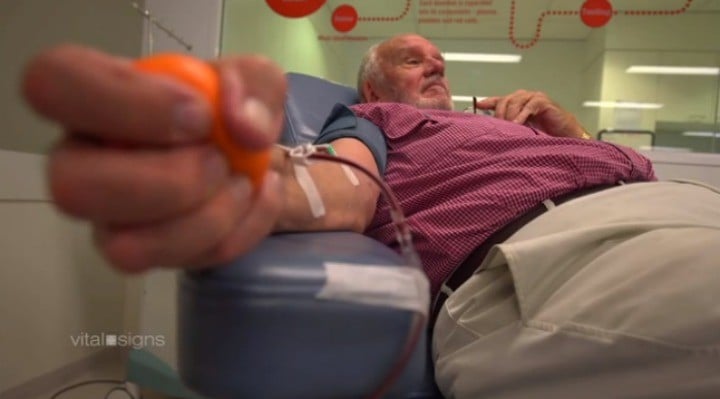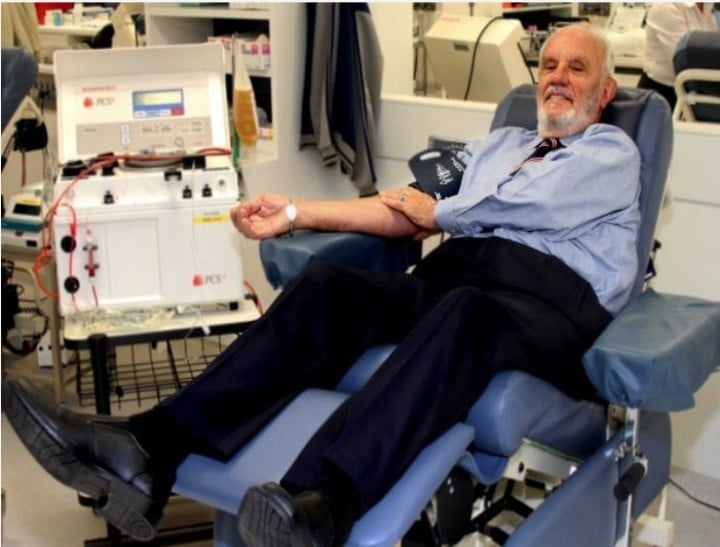
They call him the man with the golden arm.
As James Harrison heads off to his 1,100th blood donation it would be easy to just think of him as a good guy. One of those helpful types in society who do their bit to give back.
They are the type that these days we tend to give a passing thought to and then rush on with our busy lives giving more time to a video of an entertaining cat or a reality TV star’s pregnancy.
But this man is worth more than a pausing thought or a virtual pat on the back, this man deserves our immense gratitude because there is no doubt that this man has saved the life of someone you know.
Or even your baby.




Top Comments
I've had this injection many times, and had no idea of the back story that comes with it. Thank you for posting this article, and thank you James, for potentially saving my 2 rh+ babies that grew in my rh- body.
I've had three kids and needed this injection multiple times throughout each of my pregnancies- so thank you James from the bottom of my heart!!!